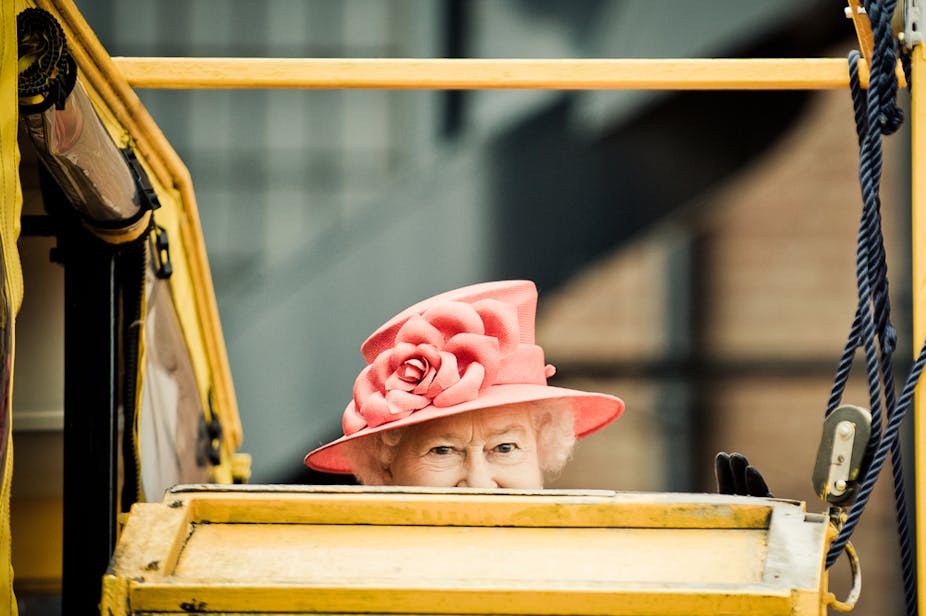British and American officials have yet to discuss the final programme of US president Donald Trump’s state visit to the UK, scheduled for June 3-6. But fierce debates are already raging over the reception that America’s commander-in-chief will receive when he crosses the Atlantic.
Late last month, the speaker of the House of Lords, Lord Fowler, seemingly contradicted his House of Commons counterpart, John Bercow, by voicing support for a presidential address to parliament. Meanwhile, the Labour MP, David Lammy, has taken to Twitter to argue that Trump is not worthy of the honours associated with a state visit.
Besides making headlines, Trump’s upcoming trip to the UK points to a critical, but so often overlooked, feature of US presidential visits – far from being superficial displays of pomp and pageantry, these events are vital forms of contemporary diplomacy and statecraft.
The mediated spectacles of presidential visits – the speeches, motorcades, dinners and protests – allow the president and host nation to enact their political personae, garner support for government agendas and communicate particular norms and expectations. As the former CBS reporter and director of the US Information Agency, Edward R. Murrow, once put it, presidential travel should be treated as a “weapon” to influence popular opinion and underline national policy.
Given their highly politicised nature, even the smallest details of presidential visits can have far-reaching consequences – as the following examples of previous presidential trips to the UK make clear.
President Donald Trump (2018)
The clothes of the current first lady, Melania Trump, have frequently been a source of controversy and discussion. But when Trump visited the UK in 2018, it was the clothing of Her Majesty the Queen that risked causing a political upset.
On the first day of Trump’s trip, the Queen wore a vintage, flower-shaped pin that had been presented to her by former US president Barack Obama during a state visit in 2011.
Although this decision may have simply been a way of marking the arrival of another US president – the pin has been unofficially named the “American State Visit Brooch” – it was interpreted by some as an attempt to embarrass Trump and quickly gained the title of “Broochgate”.
By electing to wear this particular item of jewellery, observers suggested, the Queen was expressing her preference for Obama and highlighting the warm friendship that the two heads of state had reportedly shared.
President Barack Obama (2011)
On a sunny afternoon during President Obama’s visit to the UK in 2011, he and the then-prime minister, David Cameron, helped to host a barbecue for British and American service personnel in the garden of 10 Downing Street.

While this occasion was widely framed in the media as a jovial event away from the pressures of politics, it nevertheless represented an important opportunity to ease the tensions that had arisen over the president’s reluctance to expand US military commitments in Libya.
In Anglo-American society, barbecuing is frequently represented as a distinctly “masculine” activity. And, as commentators have noted, it has also become a cornerstone of American identity because of its multicultural origins and apparent sociability.
The staging of a barbecue during Obama’s visit, then, may well have been viewed by planners as a way to bridge the diplomatic rift that had opened up between the president and prime minister by showcasing their common “manliness” during an event widely seen as a value-laden US icon.
President John F. Kennedy (1961)
It is not only during recent presidential trips to the UK that apparently mundane objects or events have taken on political significance. When visiting London with her husband in 1961, the first lady, Jacqueline Kennedy, is said to have found a dinner at Buckingham Palace somewhat distasteful.
Both the Queen’s appearance and palace decor, Mrs Kennedy informed the photographer, Cecil Beaton, had fallen short of her expectations. The first lady also later admitted that she found the Queen “pretty heavy going” and at times felt “resented” by her.
Although the extent to which Mrs Kennedy made her discomfort known at the time is unclear, her comments – which would make their way back to the Royal Family – carried an unmistakable political tone and reflected several crucial facets of the Kennedy presidency.
Perhaps most obviously, her remarks about the British monarch tied neatly into the Kennedy administration’s call to advance a “New Frontier” of American society that would abandon the trappings of the “Old World” and give way to an innovative, independent, republican future.
Pomp and pageantry
The policy implications of Trump’s state visit to the UK in June are not yet clear. What is certain, however, is that when US and British officials sit down to finalise the trip’s schedule, they will do so with specific agendas in mind and will to seek mobilise the most mundane details – from suits to seating-plans, music to make-up – in order to achieve them.

